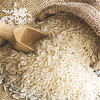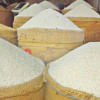Rise in clinker duty a burden on consumers

The increase of duty on the import of cement clinker by Tk 200 per tonne will have an adverse impact on the cost of production and put a burden on consumers, said Mohammad Iqbal Chowdhury, chief executive officer of LafargeHolcim Bangladesh Limited.
He made the comments during an interview with The Daily Star yesterday on the issues pertaining to the cement sector in the budget for the fiscal year of 2023-24.
At present, cement producers pay a duty of Tk 500 per tonne on the import of clinker whereas commercial importers pay Tk 750 per tonne.
The budget proposed to increase it to Tk 700 for cement manufacturers and Tk 950 for commercial importers. According to the proposal, the tax rate has remained unchanged since 2012-13.
Market insiders say cement makers imported raw materials such as clinker, fly ash, iron slag, limestone and gypsum worth around $1.5 billion in 2022. Of the imports, clinker accounted for over $1 billion in 2022.
However, this year the amount of import may be lower than that of last year for difficulties arising in opening letters of credit due to the dollar crisis. Moreover, almost all factories produced less than what they normal would have as the demand has slightly gone down due to the ongoing financial crisis, they said.
Overall, the new budget retained most VAT and customs duties of last year except for a few, said Chowdhury.
"We are yet to receive the new Income Tax Act 2023 so it is not possible to comment on what has changed and how it will have an impact in the industry."
Some important reform proposals like limiting cash transactions need to be gradually implemented, he added.
He suggested that the National Board of Revenue focus on the digitalisation of the submission of income tax returns, automation of its systems and risk-based audit to catch untaxed economic activity.
At present, the country is self-sufficient in cement production. Taxation in this sector has been increased in order to rationalise the import duty of the product and raise more revenues.
According to manufacturers, there are now 37 cement factories active in the country through a total investment of around Tk 35,000 crore and generating direct employment for around 60,000 people.
According to industry insiders, in 2022 the factories' combined production capacity reached 65 million tonnes a year against a demand of 35 million tonnes.
The sector's annual sales are worth over $3 billion, or Tk 30,000 crore.
Of the consumption, individuals use 25 per cent, realtors and developers 30 per cent, and the public sector 45 per cent, showed data from the Bangladesh Cement Manufacturers Association.

 For all latest news, follow The Daily Star's Google News channel.
For all latest news, follow The Daily Star's Google News channel. 








Comments